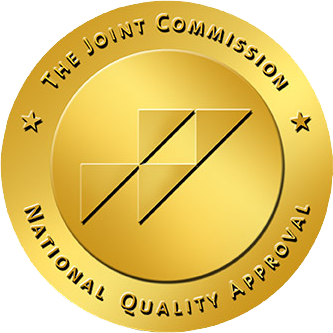Learn to Regulate Your Emotions
You can’t respond impulsively to every challenge life deals you. You must learn to consider your feelings before responding emotionally to situations. That’s exactly what Dialectical Behavior Therapy (DBT) teaches you. Instead of reacting to these challenges negatively, DBT teaches you to observe your emotions during these times of distress and helps you develop skills such as mindfulness, emotion regulation, distress tolerance, and interpersonal effectiveness.
Through DBT, you can improve your emotional regulation by learning about the triggers that cause you to react. You’ll then learn coping skills to apply to these events, thoughts, feelings, and behaviors to help avoid a reaction you consider negative.
This therapeutic approach assumes you’re doing your best. Still, you never learned to regulate your emotions, so you immediately respond to every stressor, and some of these responses are holding you back from living your best life.
Sound familiar? Give us a call.
What Is Dialectical Behavior Therapy?
Dialectical Behavior Therapy is a specific type of talk therapy. It helps people who are prone to reacting intensely to emotional situations. This arousal is often heightened to a more dangerous level if the emotional situation involves family, friends, or romantic relationships.
This heightened response occurs because arousal levels differ from one person to another. Those struggling with heightened responses can increase their emotional state more rapidly and reach a higher level of emotional stimulation. It also takes longer for these people to return to baseline levels.
Mental health professionals use DBT to treat various concerns that involve destructive behavior or impulsive responses, like depression, anxiety, and substance use. But DBT was created to treat Bipolar Personality Disorder. People with BPD experience emotional swings, often jumping from one crisis to another and perceiving the world in black and white. Few people understand these types of reactions, so coping methods to handle these intense emotional surges are limited. DBT addresses these needs.

What Are the Six Main Points of Dialectical Behavior Therapy?
DBT therapists focus on six principles throughout the treatment, namely:

- Acceptance: Many people experience difficulty adjusting to changes in their lives, which may cause a series of negative emotions. Learning to accept these changes and respond positively can lessen emotional distress.
- Behavioral: People experiencing strong emotional surges may be prone to destructive or harmful behavior, adding to their existing distress. Working on negative behavior can help patients deal with emotional surges in a healthy, non-destructive way.
- Cognitive: Mental health disorders and substance abuse recovery can leave people with unpleasant thoughts that lead to unhealthy emotional reactions. Using DBT can help patients process these thoughts constructively and change these thought patterns if they get out of control.
- Skill sets: Often, people experiencing intense emotional responses simply don’t know how to deal with these emotions. DBT provides patients with the skills to cope with their emotional surges proactively, improving their overall quality of life.
- Collaboration: Recovering from substance USE or living with a mental health issue can have a negative impact on interpersonal skills. Collaborating with others and building strong interpersonal connections can assist patients as they learn to control their emotional responses.
- Support: When living with a mental health disorder or recovering from substance abuse, it is essential to have a strong support system. DBT will help patients develop a reliable support system to help them overcome their addiction or cope with a mental disorder.
DBT Therapy Techniques
DBT helps people identify their strong points and build on them. Conversely, DBT helps people identify beliefs, thoughts, and assumptions that make their life more difficult than necessary. While recognizing the positive and negative aspects of a person’s beliefs, DBT partners them with a therapist who helps them work through their problems and practice new ways of engaging. These skills, which help them self-soothe when triggered and upset, are practiced throughout therapy.
DBT focuses on four units. They are:
1. Mindfulness
Clients develop an awareness of the present moment without judgment. The goal is to help clients accept situations, even if they don’t agree with them. Then they can process that happening and decide how best to respond.
2. Interpersonal Effectiveness
Clients learn how to communicate effectively and build relationships. They learn to assert their needs, set boundaries, and navigate difficult conversations without extreme emotional responses. These skills help them improve relationships and reduce conflict.
3. Emotion Regulation
Clients learn to identify and regulate their emotions. They also learn how to cope with intense emotions, decreasing their reactivity and increasing emotional resilience.
4. Distress Tolerance
Clients learn what to do when they have distressing emotions. Knowing how to cope with and tolerate distress helps better prepare them to face and respond to adversity.
DBT consists of weekly individual and group therapy sessions. In individual therapy, the client works through responses to recent problems and how they could respond better. Individual DBT sessions also focus on dealing with and decreasing post-traumatic stress responses and helping enhance a person’s self-image, self-respect, and social skills.
A trained DBT therapist leads these weekly group therapy sessions focused on one of the four units.
How Else Is DBT Different From Other Therapies?
DBT differs from other therapies because it focuses on acceptance and change. In DBT, clients work with a mental health professional to accept themselves and the situations they’re faced with while also developing skills to cope with and respond to those situations more healthily.
The client and therapist relationship is key to the success of this therapy. DBT requires ongoing support from the therapist and a relationship where the client understands that their therapist is there for counsel and assistance when they’re having a difficult time.
Who Benefits From CBT?
DBT is most effective for people who need help regulating their extreme emotional responses, have relationship difficulties, or engage in impulsive or destructive behaviors. It works well for people who fully commit to the therapy and who are motivated to learn new ways to approach their concerns.
DBT can be effective for treating:
- Borderline Personality Disorder
- Drug or alcohol addiction
- Anxiety
- Trauma
- Eating disorders
- Bipolar Disorder
- Depression
- Impulsive, destructive behaviors
- Relationship issues

Therapists use DBT to treat a variety of concerns, including some not listed above. After learning your specific concerns, the mental health professionals at Sana will work with you to determine if DBT is right for you. If so, it will be combined with other therapies that best suit your needs as part of your treatment plan.
If DBT sounds helpful, but you are concerned about the cost of treatment, please let our admissions team ease your worries. We never want finances to stand in the way of your recovery. Take the first step to understanding your coverage and the benefits provided to you by Senate Bill 317.
How Effective Is DBT?
DBT’s effectiveness depends on the person, how diligently they work to use the skills they learn, and how committed they are to treatment. DBT isn’t a miracle cure. It won’t work for everyone, and it won’t work for anyone who isn’t committed to doing the work to learn and apply new skills. However, DBT has the potential to drastically change a person’s relationships and the way they respond to the world around them.
In the short term, DBT can be just as effective as drug therapies in treating mental health issues. The benefits also may last longer because of the skills a person learns and practices during treatment that they take along with them when therapy ends.
Understanding and applying new ways of responding to stressors can lead to lasting changes in a person’s engagement with others and their overall quality of life.
You Deserve a New Start
Start DBT at Sana
Do you or a loved one need DBT to recover from substance abuse or a mental disorder? Reach out to Sana At Stowe, and we will discuss your DBT expectations and walk you through the treatment process. If you have financial concerns about starting therapy, you’ll be happy to know we take most health insurance. Call us today to schedule your first appointment.

Sana at Stowe has achieved accreditation and received
a Gold Seal of Approval® from The Joint Commission®.
This accreditation award verifies that Sana meets the most rigorous quality and patient safety standards of care, and shows a dedication to excellence across the full continuum of care. Learn more.

In-network with BlueCross BlueShield and OPTUM
Sana at Stowe is in-network with BlueCross BlueShield and OPTUM
and also accepts most out-of-network insurances, and accepts all private insurance. We provide financial assistance to help with the cost of treatment.


